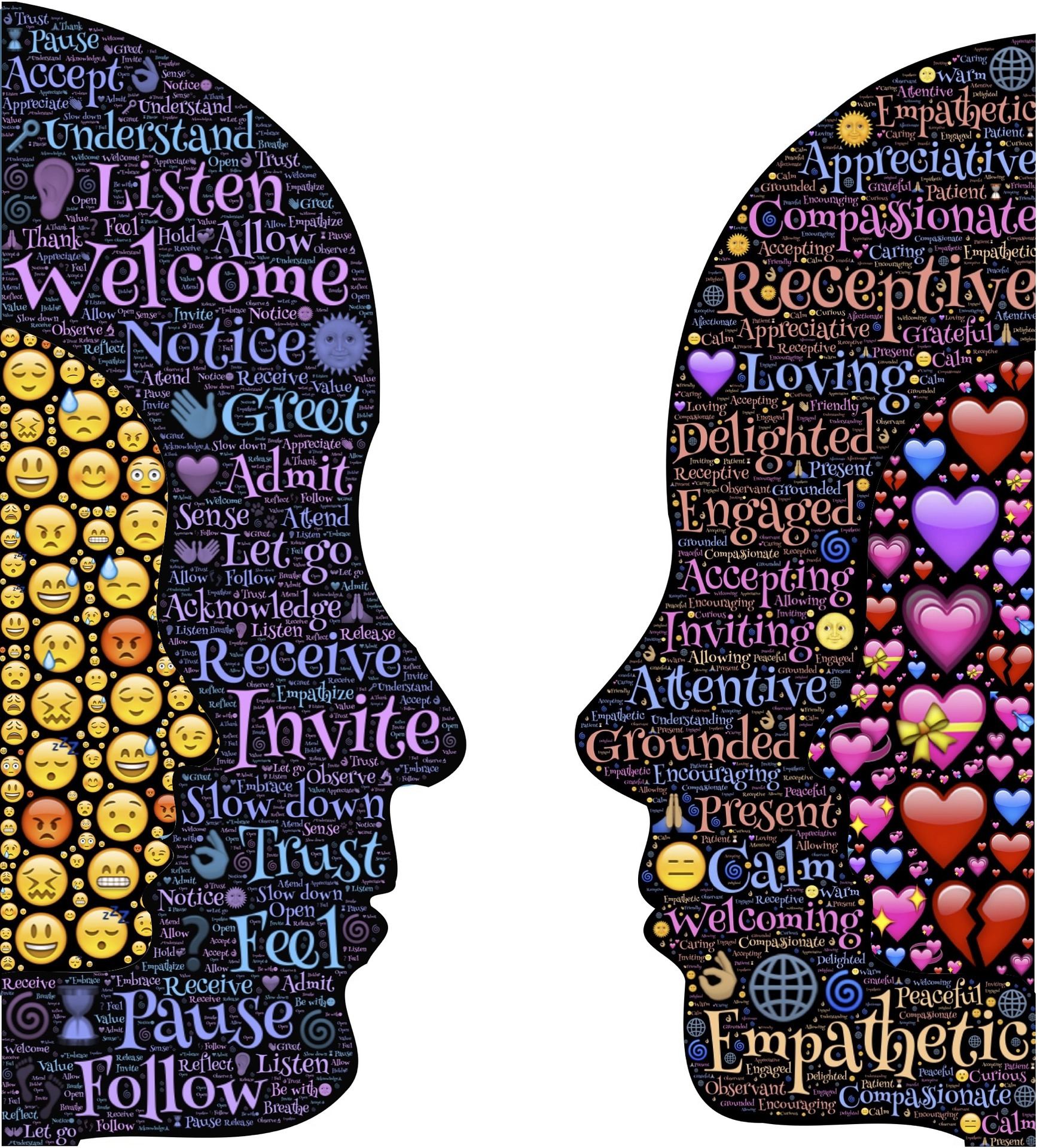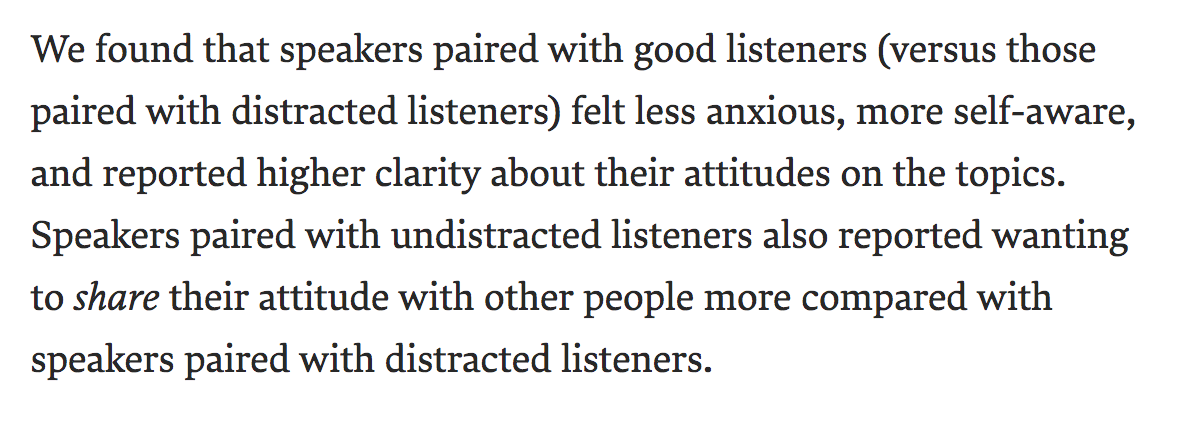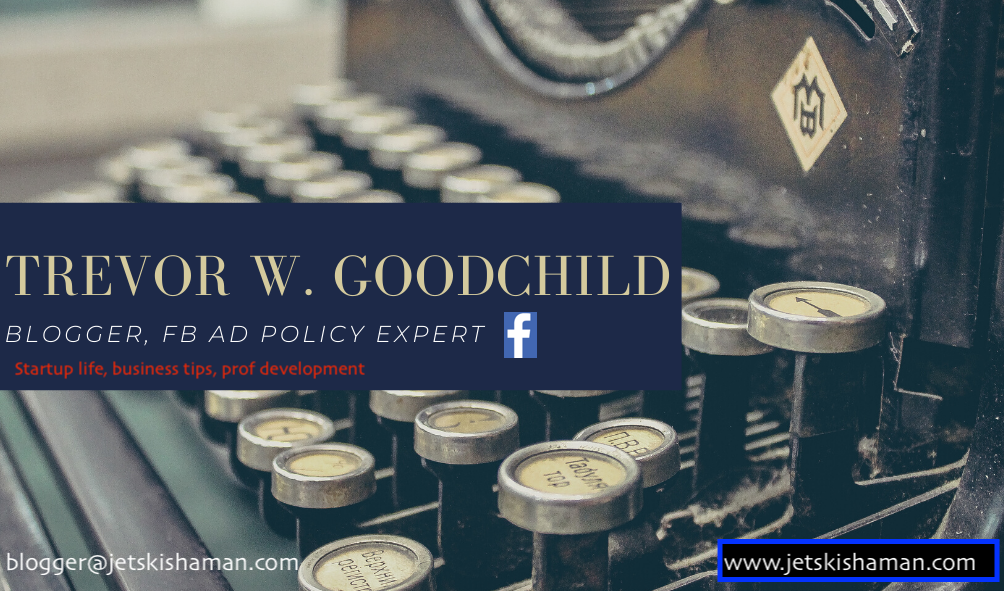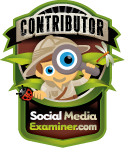
Right now it is especially important to stop looking at TikTok & develop the skill of active listening.
Customer feedback is often ignored and profits are lost because a Startup founder is too attached to an old idea that is no longer feasible in today’s market.
We’ve got black lives matters protests, we’ve got different opinions on COVID-19, opinions on how the government is handling it...
What they should be doing what they shouldn’t be doing..blah blah blah. It's so much!
When you find yourself going down a black hole of madness and negativity there is another option:
Instead of just waiting for someone to stop talking and eagerly decide exactly who they are and tell them this forcefully, we can also choose to simply pause. Ask a few questions to clarify their point of view.
We can exchange the eagerness to speak our opinion for curiosity.
The Art of Follow Up Questions
I believe that right now many of us have lost the art of follow-up questions.
I was hanging out with a friend I’ve known since childhood and I share the exciting news of one of the biggest moments of my life, of launching my second business in e-commerce.
He asked zero follow-up questions and made me feel like I hadn’t even spoken. And I know honestly reflecting there were moments as a teen, I was so eager to share something that didn’t notice the other person had just shared something meaningful.
The good thing about perspective is you can use it to examine itself. Instead of the knee-jerk reaction many have to constructive feedback to say, “Well I guess I failed at that too.” < end convo > we have the amazing quality of trying just a little harder.
Studies Show That...
Right now is a great time to examine perspectives, especially our own, and see how we can do better, be better than just mediocre.
The Harvard Business Review did a study on active listening that revealed some key insights here.

Credit: Harvard Business Review
Imagine that - when someone gives you feedback and sounds judgmental af you don't receive their feedback too well. On the flip side, when feedback is delivered from someone who is active listening, it is 10 times more well received.
The study the Harvard Business Review did demonstrates this isn't just a theory but statistically proven true time after time. One lab experiment assigned 112 undergraduate students to be speaker or listener.
Another lab experiment done with 114 undergraduates at a business school. The students were told to talk about their future plans and each student was paired with poor, moderate and good listeners. This is what they found:

Credit: Harvard Business Review
Our customers deserve better too. Many are buying on debts they can’t pay back and it’s not too much to ask for active listening to play a role in the customer experience.
The Pay Off is Big
The teenage version of ourselves isn’t who we are today - we are fully capable of asking follow up questions to demonstrate sincere interest in our clientele.
And, the added perks of doing so are many. The small amount of energy invested in being curious, will often reduce conflict, and increase CTV.
The range of environments and businesses that benefit from follow up questions and active listening is well documented. In the medical peer-reviewed Electron Physician journal a study revealed that:
"One of the important causes of medical errors and unintentional harm to patients is ineffective communication. Active listening does not come naturally to most of us, and, like other communication skills, it must be learned and developed."
I definitely don't want a doctor to operate on the wrong body part because he didn't listen well! Asking follow up questions derived from sincerely listening to someone has tremendous value.
This journal also makes the important observation - active listening doesn't always come naturally.
You do have to make an effort to develop it to benefit from these skills. But, the pay off is huge:
Better business deals, better converting sales funnel, positive social circles and high-power networking.
Appreciated & Respected
I’ve learned since being a child, the value in asking follow-up questions. I've learned the value of active listening and making other people feel appreciated and respected.
Personally & professionally.
Of course, I'm still working on perfecting it but, I'm aware of where the work needs to be done which is where the first battle is won.
When someone doesn't feel appreciated or respected who's shopping at your store or contracting your service you reduce their loyalty and chance they'll give you repeat business.
In social circles, this can cause unnecessary rifts that are easier to prevent than repair.
That’s why it’s important right now to just take a moment and pause before we respond to other people.
This helps us in our business doing market research on what the customers really want instead of our assumption of how we can solve their pain points.
What are the underlying circumstances of a pain point?
What second solution are they trying to solve in addition to the first?
These sort of questions are not asked nor are they answered when we are quick to assume that we know what another person feels, thinks, or believes.
We won't know a prospects' wants and needs unless we ask follow-up questions.
Omitting this very crucial part of social interaction is what leads very good people who used to be great friends to sometimes never even speak again because they take a hard stance on one issue, and refuse to listen to each other.
With the heightened emotion, panic, fear and everything else going on right now the reptile part of our animal brain that dictates the flight or fight response just assumes that if someone doesn’t agree with us about something like Covid they must be a danger to be avoided.
While this can be understandable if someone who tested positive is out shaking hands and kissing babies and refuses to socially distance - which would be irresponsible and unfair to other people who don’t want to get sick-
In other circumstances when it’s merely an intellectual debate those follow-up questions help us to understand why someone feels the way they feel.
You will discover using the secret power of follow up questions, pausing your first reaction, that you have more in common with another person than you think you do.
And they’ll hear your point of view better if you listen first. #facts
Great Follow Up Questions To Ask
So the next time you find yourself disagreeing with someone try waiting to share your opinion. First ask follow-up questions like:
What led you to believe this?
Is that so?
What do you think of other people that disagree with this point of view?
Do you think other people may have doubts about that?
What would you say to someone that doubted that this is the best approach?
Does their opinion have any merit?
Is there anything you think you should say to someone that you respect but may not share your opinion on this topic?
Do you have any doubts about the position you’ve taken on this issue?
In Conclusion...
By simply asking people for more information you show them that you are sincerely interested in understanding why they think the way they do instead of demonstrating to them that your only interest is in hearing yourself speak or being right or just scoring points in a conversation or debate.
And we need more constructive solution-focused conversations right now, less aimless arguing.
Asking questions through active listening also shows that you respect the other person.
How many times has a sales agent tried to pitch you over the phone, or at a car dealership or at Best Buy and was more concerned with getting to the end of their pitch than hearing you?
Annoying right?
Not just annoying - it’s ineffective. The sales agents that pause and listen to what the potential customer is actually saying convert at much higher rates because they’ve made people feel appreciated and respected.
Now that you’re taking the time to really ask why they feel the way they feel instead of assuming you already know everything about them because of one word that triggered you - everyone feels better.
It also empowers you to overcome misconceptions the other person may have had about you. As well as clear up misunderstandings you had about the other person.
So ask follow up questions!
It allows us to bridge gaps rather than burn bridges which is always a lot more advantageous.
Do you have a time you wish someone listened to you better as a customer or personally?
. . .
Enjoyed this blog?
Signup here to get updates on new startup blogs.
Is Facebook not explaining why the disapproved an ad?
I worked at FB for years and offer FB Policy Consulting here
Available for freelance writing and guest posting on your blog: [email protected]






Leave a Reply
You must be logged in to post a comment.